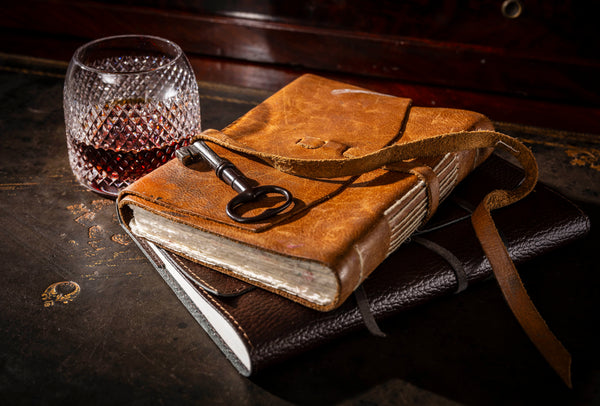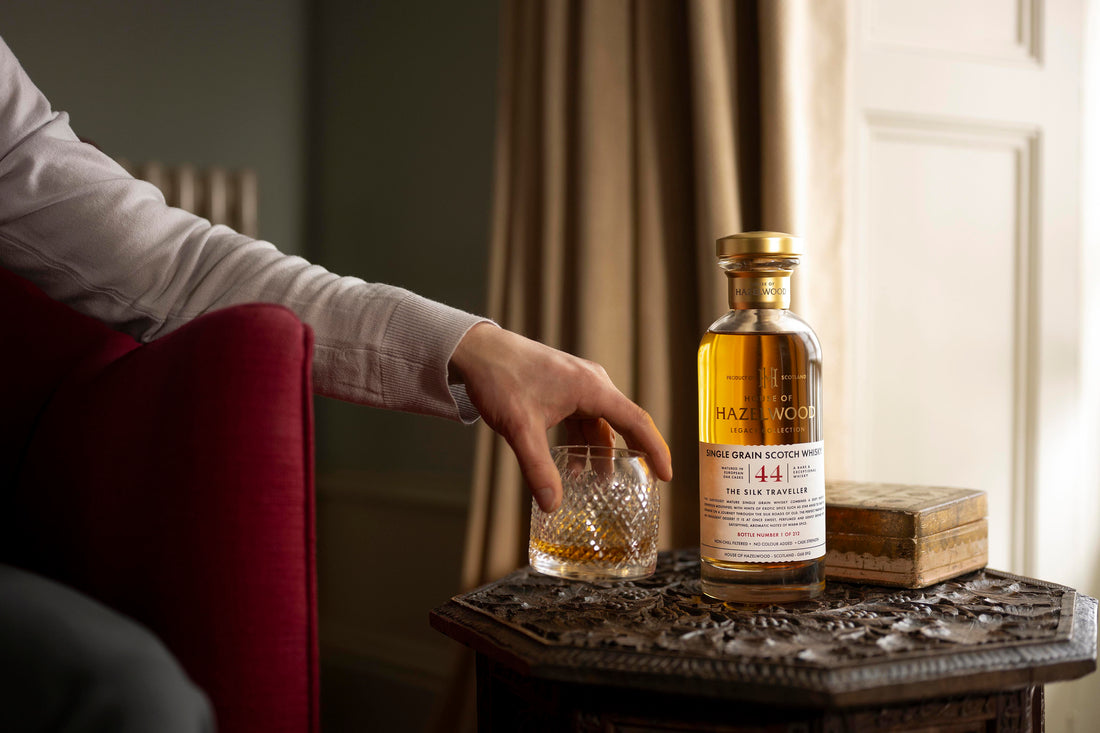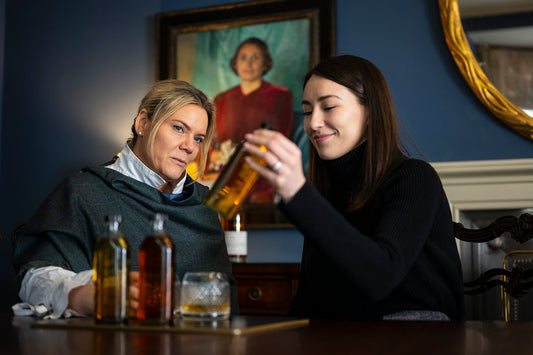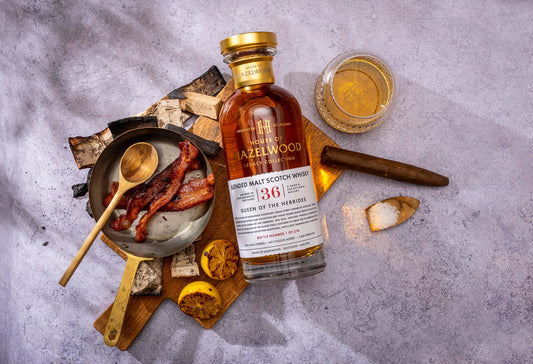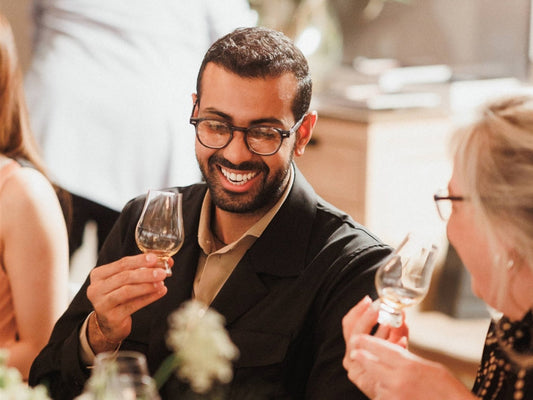Well-aged and rare Scotch Whiskies are almost always complex in their nature. Years of aging in cask give way to nuanced layers of flavour – and for the connoisseur improving one’s palate is an essential endeavour to maximise hedonistic enjoyment. But how does one improve their rare whisky tasting ability?
No matter where you are in the world, most people adopt a universal approach to appraising a glass of rare Scotch Whisky. On the first pour, the glass is inspected, the eye taking note of the colour in vessel, inspecting for any visually discernible anomalies. Next, we step into the aroma, bringing the glass close to the nose once, inhaling the scent, before perhaps taking a quick cleanser of air before returning to evaluate once more. At this point, most will progress to the initial taste, noting the apparent flavours and mouthfeel over multiple moments, perhaps pausing briefly to add a dash of water, before pondering on the finish: judgement collected and complete.
So, why is it, if we have this collectively agreed ritual of sampling that we will likely uncover an entirely different set of flavours from our peers? To understand, we must take a quick biology lesson.

How do we taste flavour in Scotch Whisky?
The two major senses which impact our perception of Scotch Whisky are exactly as you may think: smell and taste. Despite operating through two independent systems, the two are irrefutably linked and can greatly influence your perception of taste.
The olfactory system is the scientific name given to our sense of smell and ability to perceive aromas. Most mammals and reptiles possess an olfactory system, and in the case of humans, ours resides, as you would expect, within the nose and nasal cavities working in parallel with organs associated with respiratory function.
Within this system exists layers of tissues, named the olfactory epithelia, which due to genetics and personal make up, means that the perception of certain smells is unique to everyone – an evidence-based explanation for why two individuals will discern different tasting notes from one glass of whisky.
The olfactory system, despite operating within the sense of smell, is interlinked with the sense of taste – meaning that if one suffers from a cold or flu, this inhibition of the nasal passage results in a reduced ability to “taste” with food becoming seemingly flavourless and muted. Bringing into account that almost every individual person will have a genetic predisposition to being able to perceive particular flavour compounds more than others, we can begin to see the potential impact a lack of nosing could have when sampling a rare Scotch Whisky – to forgo this process would considerably reduce the ability to fully realise the flavour of the glass in hand.
The parameters of taste are firmly rooted within the plains of sweet, salty, and sour amongst others, but the aroma of smell is far more likely to influence and enhance the tasting experience – especially if strong emotions are present. The same perhaps could be argued for visual appeal – with thick, viscous free-flowing spirit prompting mouth-watering anticipation.
What can I do to improve my rare Scotch Whisky tasting ability?
Every glass of Scotch Whisky holds within a world of flavour – and considering the variability of circumstances, and even our own olfactory senses on any given day – the chances are your experiences of a singular whisky will evolve to uncover the complexities that lie within. To help you get started on your foray into flavour, try these tips for enhancing your enjoyment.
Expand your flavour dictionary
Identifying the tasting notes that lie within a whisky can often be aided by improving your flavour repertoire elsewhere. This is particularly important if you find yourself to be a creature of habit, as routines in our day to day lives (and even diets) could limit our perception when it comes to uncovering new flavours. In your pursuit for the finer flavours of rare Scotch Whisky, take mindful moments to smell, taste and assess food, flowers and more – you’d be surprised how often these things can share flavour compounds with well-aged whisky.
Warm up the palate and let it breathe
To truly enjoy the nuances of a rare and well-aged whisky, repeated appraisal of the spirit in glass is needed. A palate that has not had the time to effectively “warm” up to a high ABV (alcoholic strength) drink may initially be overwhelmed, inhibiting potential flavours. Enjoy your glass over a longer period with repeated sips and allow the flavours to unveil themselves.
Some whiskies will also benefit from being given air to “breathe” as they acclimatise to the room temperature and interact with the atmosphere, allowing more volatile aromas to disperse first. These subtle chemical reactions are unlikely to change the identity of the glass in hand, but instead may evolve in its characteristics the longer it remains held in hand.
Add water
Much like letting your glass of whisky “breathe”, adding a few drops of water to your glass can also help to reveal further depth within your whisky. Begin by sampling your whisky without water, and gradually add water little by little. Doing this can help to reduce the intensity of some whiskies (particularly those bottled at a high strength) and mellow out the palate. For some, this helps to discern more nuanced notes that would otherwise be difficult to identify.
Take a break
It may sound counterintuitive, but taking a break, particularly if you have had a flavour-rich evening of fine food and spirits, will help to allow your palate to “reset”. Be wary if you are ingesting strong flavours (for instance, garlic or spices from a meal) as this could impact your ability to fully realise the flavours of your chosen rare Scotch Whisky.

A Rare Whisky Tasting – Finding Your Flavour
A rare Scotch Whisky tasting can unveil the most unexpected of flavours. Flavour can be influenced by so much of the whisky making process – from reflux to fermentation to of course, decades of aging within a cask. Will you find a hint of mint? Perhaps so within A Breath of Fresh Air. Or will you traverse The Transatlantic in search of golden, buttered popcorn? Perhaps your curiosity will take you to faraway lands, exploring the spiced Single Grain offered by The Silk Traveller? Whatever your choice from within the House of Hazelwood inventory, the flavour will always reward.
